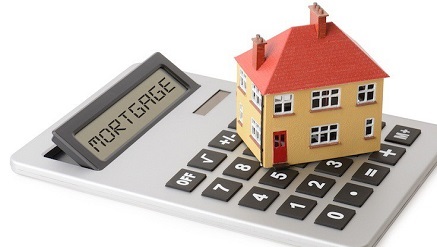Mortgages are used by individuals and businesses to make large real estate purchases without paying the entire value of the purchase up front. A mortgage is a debt instrument, secured by the collateral of specified real estate property that the borrower is obliged to pay back with a predetermined set of payments.
The Housing Sector plays a more critical role in a country’s welfare than is always recognized because it directly affects not only the well-being of the citizenry but also the performance of other sectors of the economy.The Federal Mortgage Bank of Nigeria (FMBN), established in 1956, operates as a vehicle for increasing the mobilization of long-term funds, lending volume and expansion of mortgage lending services to all segments of the Nigerian population.
Click here to watch weekly episodes of our Housing Development Programme on AIT

In Nigeria, mortgage financing has been a major area of concern, identified as one of the most formidable constraints in the housing sector. The recognition of the critical importance of finance in housing delivery led to the establishment of the Nigerian Mortgage Refinance Company in June 2013.
The NMRC was set up to bridge the funding cost of residential mortgages and promote the availability as well as the affordability of good housing to Nigerians by providing increased liquidity in the mortgage market through the mortgage and commercial banks.
Policies of various arms of government in Nigeria had been unstable over the years due to frequent changes and instability in the nation’s system. This instability can be attributed to the government’s failure to develop a viable and sustained housing finance system either because of lack of expertise, up to date and knowledgeable industry leaders especially in the policy making arms, lack funding for relevant institutional agencies/department, political and selfish gains.
CHALLENGES OF HOUSING IN NIGERIA
 The Nigerian housing market remains largely untapped and portends immense potentials for investors. The nation is currently faced with about 17 million housing unit deficit with a projected annual increase of about 900,000.
The Nigerian housing market remains largely untapped and portends immense potentials for investors. The nation is currently faced with about 17 million housing unit deficit with a projected annual increase of about 900,000.
The challenge of affordability has been attributed to high costs of land and building materials. For the majority of the Nigerian populace that falls below the middle class, this high cost of building has made the dream of owning their homes far-fetched.
Some challenges associated with housing provision for the low and medium income earners include credit risk, liquidity risk, and cash flow risk.
 The mortgage banks face the challenges of;
The mortgage banks face the challenges of;
- Low-interest rates on National Housing Fund
- Macroeconomic environment
- Non-vibrancy of some Primary Mortgage Institutions (PMIs)
- Cumbersome legal regulatory framework for land acquisition
WAY FORWARD
- To effectively tackle the housing deficit in Nigeria, there is a need for an integrated approach that encompasses all elements and processes required in housing production, beginning from land acquisition up until building acquisition.
- The nation needs policy makers that are housing specialist who have the requisite knowledge and competence and not just political figures who do not understand the role of housing in an economy.
- The primary impediment to the development of a virile mortgage banking sector is the Land Use Act (LUA) 1978 because it affects every aspect that relates to the acquisition of affordable housing ranging from basic human rights to mortgage lending.
- The successful amendment of this land use act will effect certain changes that would ultimately encourage processes that would facilitate the delivery of affordable housing in the country.
Some of the benefits that would accrue include but are not limited to the following:
- Enabling easy and continuous Amendments to the Act, when considered desirable
- Obtaining Titles to Ownership of Land would be faster
- There would be Security of Tenure to Land
- Home Ownership by Nigerians would become affordable and faster
- Land would become a veritable source of wealth creation for Nigerians
- Contribution of Nigerian Mortgage Sector to GDP would become significant
- Higher output level in Nigeria, coupled with higher Productivity from Nigerians
- Increased Employment Generation and reduced Poverty level
- Significant downward trend in corruption/corruption-related matters
 With a good macroeconomic environment, sound policy, better data and increased access to affordable credit, an enabled housing market can increasingly provide housing that the average household in Nigeria can afford.
With a good macroeconomic environment, sound policy, better data and increased access to affordable credit, an enabled housing market can increasingly provide housing that the average household in Nigeria can afford.
Source: realestateunite.com




